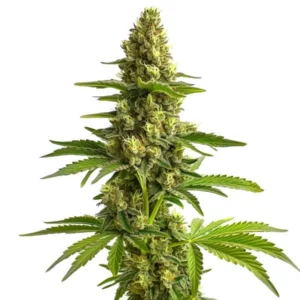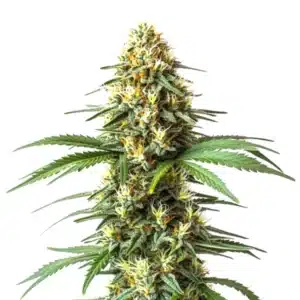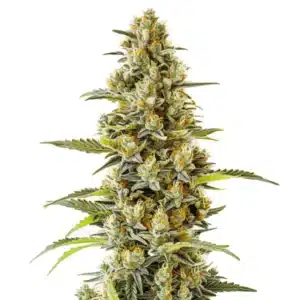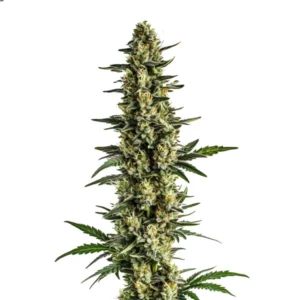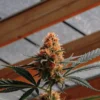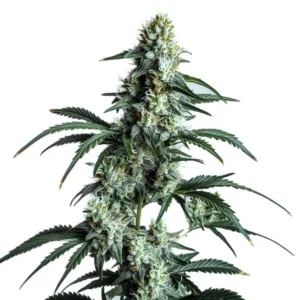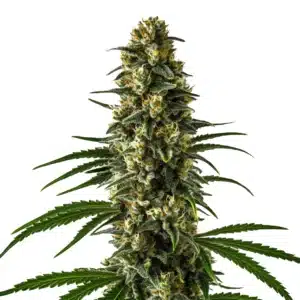
How to Reduce Oxidative Stress in Cannabis
Oxidative stress can be a real challenge in cannabis cultivation. It happens when there’s an imbalance between free radicals and antioxidants in your plants. Free radicals are unstable molecules that can damage cells, affecting growth and yield. However, don’t worry knowing how to reduce oxidative stress in cannabis can help you protect your plants and boost overall health.
Think of free radicals as tiny troublemakers. They can wreak havoc on your cannabis plants if left unchecked. But antioxidants are like peacekeepers. They neutralize these radicals, preventing damage. By knowing how to reduce oxidative stress in cannabis, you can ensure your plants thrive.
Recommended Strains
Bruce Banner #3
|
|
THC | 20% - 29% (High) |
|
|
Type | Feminized |
|
|
Yield | Medium |
|
|
Phenotype | 50% Indica / 50% Sativa |
Mimosa
|
|
THC | 24% - 30% (High) |
|
|
Type | Feminized |
|
|
Yield | High |
|
|
Phenotype | 30% Indica / 70% Sativa |
There are several effective strategies for reducing oxidative stress in cannabis production. From choosing the right strains to using natural antioxidants, every step you take can make a difference. So, let’s dive into the practical tips and methods that will help you on your cultivation journey.
Choosing the Right Cannabis Strains
Not all cannabis strains are equal when it comes to handling oxidative stress. Some are naturally more resilient. For instance, the Bruce Banner 3 strain from Blimburn Seeds is known for its robust nature. It can withstand various environmental stresses, making it a great choice for beginners and experts alike.
GG4, another strain available at Blimburn Seeds, is renowned for its resilience. It’s a popular choice for those looking to minimize oxidative stress. Its genetic makeup allows it to handle stress better, leading to healthier growth and better yields.
When selecting strains, consider their origin and genetic background. Strains bred in challenging climates often develop natural resilience, making them excellent choices when learning how to reduce oxidative stress in cannabis. These strains can often thrive with less intervention, providing a more sustainable cultivation process.
Additionally, exploring strains with a natural abundance of antioxidants to combat oxidative stress in cannabis growth can further enhance the plant’s ability to neutralize free radicals. By choosing strains wisely, cultivators can leverage nature’s best methods to reduce oxidative stress in cannabis plants.
Blue Dream: A Resilient Choice
Blue Dream is a strain that stands out for its ability to thrive under stress. Originating from California, it’s a favorite among growers who face challenging conditions. This strain’s resilience can help reduce oxidative stress in cannabis plants naturally.
Blue Dream combines the best of both worlds: the calming effects of indica and the energizing impact of sativa. It’s not just about the high; it’s about the strength it brings to your garden. By choosing strains like Blue Dream, you’re already taking a proactive step.
Blue Dream is well-regarded not only for its stress resilience but also for its consistent performance across different growing environments. This makes it a reliable choice for those seeking natural ways to minimize oxidative stress in cannabis cultivation. Its robustness is an asset in both indoor and outdoor settings.
The genetic stability of Blue Dream allows it to maintain vigor and yield quality even when faced with suboptimal conditions. This trait positions it as a cornerstone strain for cultivators focused on effective strategies for reducing oxidative stress in cannabis production.
Promos & Deals
Implementing Proper Cultivation Techniques
Techniques for managing oxidative stress in cannabis farming involve more than just picking the right strain. It’s about creating an environment where your plants can thrive. Start with proper lighting. Too much light can increase stress, while too little can stunt growth.
Watering practices also play a crucial role. Overwatering can lead to root rot, while underwatering stresses your plants. Find the right balance. Use well-draining soil to ensure your plants get the necessary nutrients without excess water retention.
Another critical aspect is maintaining optimal temperature and humidity. Fluctuations can lead to increased oxidative stress, so consistent conditions are key. Investing in quality equipment to monitor and regulate these factors can significantly improve plant health.
Regularly pruning your plants can also help. By removing dead or diseased foliage, you improve air circulation and light penetration, which are vital in reducing stress. These techniques for managing oxidative stress in cannabis farming are essential for any serious cultivator.
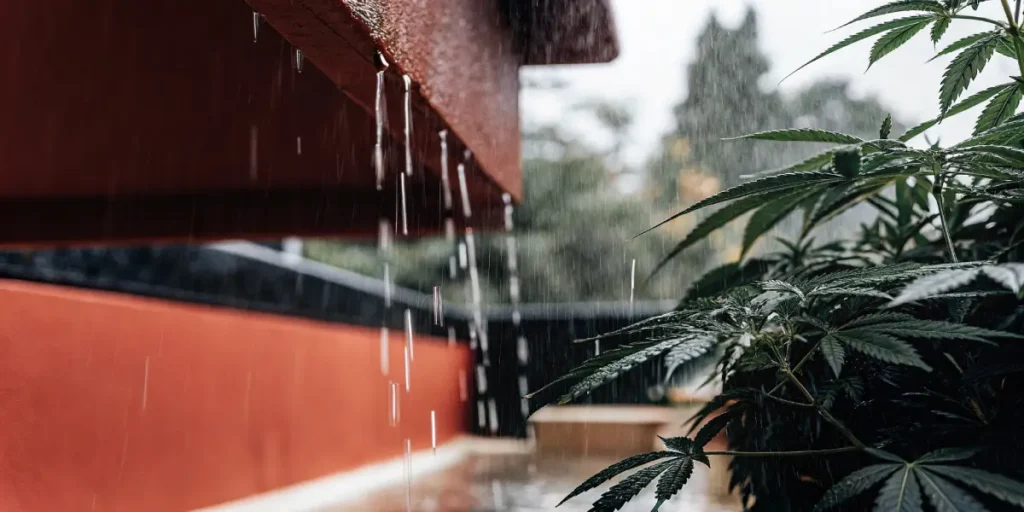
Optimize Nutrient Supply
Feeding your plants the right nutrients is vital. Antioxidants to combat oxidative stress in cannabis growth include vitamins C and E. These can be found in certain fertilizers and supplements. They help neutralize free radicals, protecting your plants.
It’s not just about adding more nutrients. It’s about adding the right ones at the right time. Monitor your plants and adjust as needed. This proactive approach ensures your plants have what they need to fight stress naturally.
Incorporating organic fertilizers rich in macro and micronutrients can further enhance plant resilience. Natural composts and manures often contain beneficial compounds that support plant immunity against stressors.
Consider using foliar sprays as a direct method to deliver essential vitamins and minerals. This technique allows for immediate absorption and can be particularly effective during growth spurts or stress periods.
Natural Ways to Minimize Oxidative Stress
Natural methods can be just as effective as synthetic ones. Companion planting is an excellent way to manage stress. Certain plants, like basil and marigold, can help repel pests and provide shade, reducing stress.
Another technique is mulching. It helps retain moisture, regulate temperature, and prevent weed growth. This creates a stable environment for your cannabis plants, reducing the stress they experience.
Incorporating biodiverse planting can enhance the ecosystem around your cannabis plants, attracting beneficial insects and microorganisms that aid in stress reduction. This is one of the natural ways to minimize oxidative stress in cannabis cultivation.
Additionally, adopting permaculture principles can create a self-sustaining environment. By mimicking natural ecosystems, these methods reduce the need for human intervention, allowing plants to thrive naturally with minimal stress.
Introducing Beneficial Microbes
Beneficial microbes can play a significant role in reducing oxidative stress. These tiny organisms enhance nutrient uptake and improve soil health. Products containing mycorrhizal fungi are particularly effective.
By introducing these microbes to your soil, you’re boosting your plants’ natural defenses. They help create a balanced microecosystem where your plants can thrive with minimal stress.
Beneficial microbes also help decompose organic matter, releasing nutrients back into the soil. This process naturally enriches the growing medium, making it one of the best methods to reduce oxidative stress in cannabis plants.
Inoculating seeds or young plants with microbial solutions can establish a healthy root microbiome from the start. This proactive approach sets the stage for robust plant development and stress resistance.
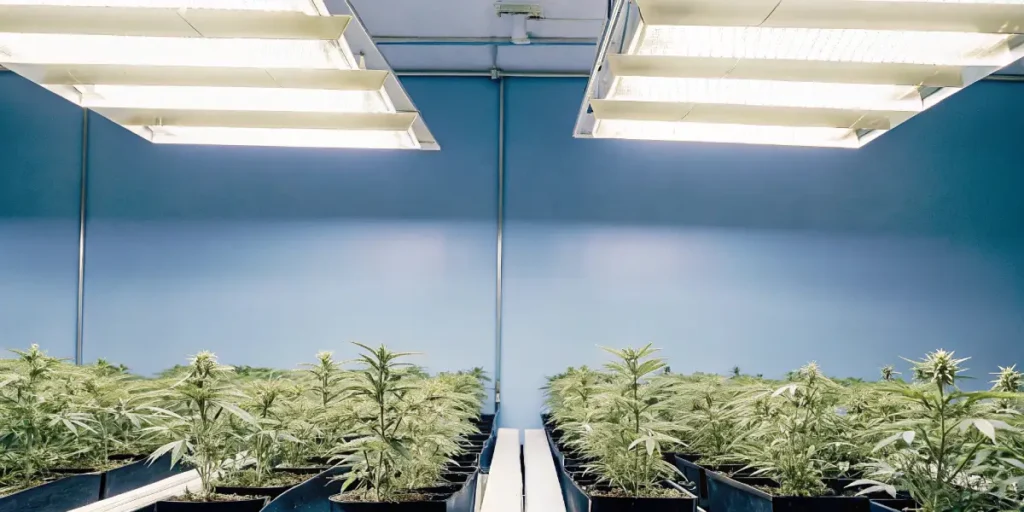
FAQs of how to reduce oxidative stress in cannabis
What is oxidative stress in cannabis plants?
Oxidative stress in cannabis plants occurs when there’s an imbalance between free radicals and antioxidants. Free radicals are unstable molecules that can damage plant cells, affecting growth and yield. Antioxidants help neutralize these radicals, protecting the plants.
This stress can be caused by environmental factors like excessive light, poor nutrition, or pest infestations. Managing these factors effectively can help maintain a healthy balance and promote better plant health.
Knowing how to reduce oxidative stress in cannabis involves addressing these environmental challenges and implementing preventative measures. By doing so, growers can enhance the plant’s resilience and productivity.
Implementing comprehensive cultivation strategies that focus on both prevention and intervention is crucial. This holistic approach ensures plants are equipped to handle oxidative stress, leading to healthier growth and higher yields.
How can I naturally reduce oxidative stress in my cannabis garden?
One of the most effective strategies for reducing oxidative stress in cannabis production is through natural methods. Use companion planting with beneficial herbs like basil to repel pests and provide shade. Mulching is another great technique to retain soil moisture and regulate temperature.
Introduce beneficial microbes and organic compost to enhance soil health and boost your plants’ natural defenses. These methods create a supportive environment that helps your cannabis plants thrive with minimal stress.
Incorporating organic teas and extracts made from seaweed or alfalfa can provide a boost of antioxidants to combat oxidative stress in cannabis growth. These natural supplements support plant vitality and resilience.
Furthermore, maintaining biodiversity in your garden promotes ecological balance, reducing the likelihood of stress-inducing factors such as pest outbreaks or nutrient deficiencies.
Are there specific cannabis strains that handle oxidative stress better?
Yes, some cannabis strains are more resilient to oxidative stress. Strains like Bruce Banner and GG from blimburnseeds.com are known for their robustness and ability to thrive under challenging conditions.
Choosing strains that are naturally strong is one of the best methods to reduce oxidative stress in cannabis plants. Blue Dream is another excellent choice for those looking for a strain that can handle stress effectively.
When selecting strains, consider those with a proven track record of resilience in harsh conditions. These strains often come with inherent genetic traits that bolster their defense mechanisms against oxidative stress.
Researching and experimenting with different strains can provide insights into which ones perform best in your specific environment, allowing for tailored cultivation strategies that minimize stress.
What role do nutrients play in managing oxidative stress?
Nutrients are crucial in managing oxidative stress. Antioxidants like vitamins C and E found in certain fertilizers help neutralize free radicals, protecting your plants from damage.
It’s important to provide the right nutrients at the right time. Monitor your plants and adjust your feeding schedule as needed. Avoid synthetic chemicals that can increase stress, opting for natural alternatives instead.
Ensuring a balanced diet that includes essential minerals such as magnesium and calcium is vital for plant health. These nutrients support various physiological functions that contribute to stress resistance.
Tailoring nutrient plans to the specific growth phase of your plants can optimize their ability to cope with stress, enhancing overall vitality and yield potential.
How does proper watering affect oxidative stress in cannabis?
Proper watering is essential for reducing oxidative stress in cannabis plants. Overwatering can lead to root rot, while underwatering stresses your plants. Finding the right balance is key.
Use well-draining soil to ensure your plants receive the necessary nutrients without excess water retention. Consistent watering practices create a stable environment, reducing the stress your plants experience.
Implementing a drip irrigation system can help maintain optimal moisture levels, delivering water directly to the roots without causing excess humidity or waterlogging.
Monitoring soil moisture levels with sensors or simple manual checks can guide watering schedules, ensuring your plants receive the right amount of hydration to support growth and reduce stress.


